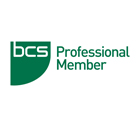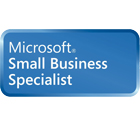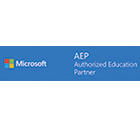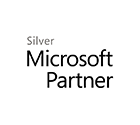With the majority of the world in the same predicament, most of the UK workforce are finding themselves working from home for the first time.
Working from home can bring a set of new challenges and risks, so it’s vital to maintain safety precautions while working online.
Statistics have shown that instances of cybercrime may have increased as much as 300% since the beginning of the COVID-19 pandemic, so It’s important to keep you and your business secure during this time.
It can be easy to become complacent, so make sure you’re following our 9 tips to stay safe and protect your information online.
- Restrict admin access to files and sensitive information
Research has found that 53% of companies had over 1,000 sensitive files open to every employee. If that isn’t worrying enough, it was also reported that, on average, every employee had access to 17 million files.
Assess whether it’s necessary for all employees to have access to sensitive files. It’s easy to limit access to particular documents and then grant limited access for however long is needed.
This limits the risk of sensitive information being breached and is generally just good security practice for your business.
- Don’t re-use passwords
It’s advice I’m sure we’ve all heard a hundred times, but using the same password across multiple accounts makes you a prime target for hackers.
Use a unique password that is strong and avoid repeating it across accounts.
If remembering them is an issue, don’t write them down!
Consider using a password manager to keep track of your details in a secure and safe way.
- Use a VPN
If you have to use public wifi or are using wifi that may not be secure, consider using a VPN (a virtual private network).
A VPN will protect you, your device and your information by masking your IP address.
VPN services also establish secure and encrypted connections.
For more information about the benefits of a VPN, here’s a great article from Norton.
- Log out of all sessions
One of the key ways to keep your accounts secure is to monitor who has access to them.
By logging out of all your sessions, you can get a quick visual of who has access to what.
In most settings, whether it be an email or social media account, there is an option to sign-out of all the places the account is signed-in. This can help ensure that no one is logged in that shouldn’t be.
Most platforms also support the option to get an email alert whenever there is a new login, making it easy to spot and act fast upon any suspicious activity.
We also highly recommended that you set up two-factor authentication for as many accounts as you can, in order to provide an extra deterrent for any unauthorised user attempting to access your account.
- Protect devices with an antivirus solution
Antivirus software is an absolute essential for any machine, both for personal and professional use.
Not only will you be protected against attacks and malware, but most antivirus software will also help you get the most out of your computer. Scans can help identify areas that may be causing your machine to lag, and with a quick removal, the performance of your machine should improve.
Most desktops come with antivirus software preinstalled, but there are plenty available.
The supplier of your machines should provide you with advice for your specific systems, however, if you’d like further advice you can contact us and we’ll be happy to help.
- Update programs and operating systems
It’s just as important to keep your systems up to date as it is to have them in the first place.
Make sure your machine is updated regularly to avoid becoming at risk.
Updates are there for a reason, and most of the time they’re updated to ensure you’re protected.
- Stay vigilant
Even with all the above processes in place, staying vigilant is still one of the most important aspects of staying safe online.
It’s been found that 48% of malicious email attachments are office files and approximately 1 in 13 web requests leads to malware.
Practise caution over any links sent, even within your own company,
Be aware of risks both online and offline. If you’ve taken your computer home, it might be worth checking whether it’s protected by your content insurance and keep any sensitive documents securely stowed away.
- Back-up regularly
One of the risks of moving to a different environment is the change in back-up regularity.
It’s important to frequently back up your machine to reduce the risk of losing files should anything go wrong.
Be wary of keeping backups on USBs and hard drives. If you are storing physical backups, keep them in a secure place.
- Outsource your IT services
If you’re struggling to manage it might be time to consider outsourcing your IT services. At CCCit we offer IT support and services in Bristol and Bath. We offer a wide range of support packages, with a focus on IT support for small businesses too.
With a 24/7 help desk, you’ll never be left out of the loop.
If you’d like to discuss your options or you’re just seeking friendly advice, please contact us via our online form or call us today.
For further government advice on staying safe online while working from home, we recommend this useful guide from the National Cyber Security Centre.






